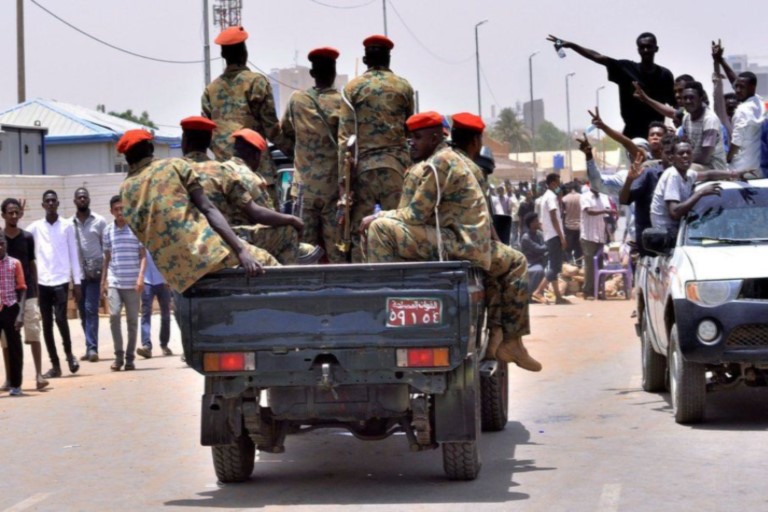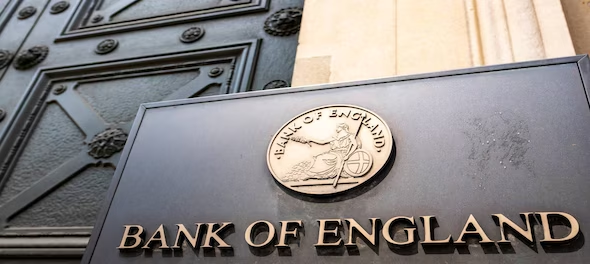At least seven people were killed and 140 injured when Sudanese soldiers opened fire on protesters who took to the streets following a coup on Monday, the health ministry says.
The clashes took place outside the military’s headquarters in central Khartoum hours after the country’s top soldier, Gen Abdel Fattah Al Burhan, dismissed the civilian-led government, declared a nationwide state of emergency and arrested Prime Minister Abdalla Hamdok and other leading government officials.
The coup came just a month before the military was supposed to hand over the leadership of the council that runs the country to civilians, and more than two years after protesters forced the removal of long-time autocrat Omar Al Bashir.
In a national TV address, Gen Al Burhan said he was dissolving the ruling military-civilian Sovereignty Council he has led since its creation in a power-sharing deal in August 2019. A government of “independent” technocrats would run the country, while the military remains the “guarantor” of the transition to civilian rule, he said.
The reins of power will be handed over to a government after elections in July 2023, he added.
In a bid to justify the coup, he said “what the country is experiencing now is a real threat and danger to the dreams of the youth and the hopes of the nation”. He also accused political forces of becoming “power-hungry” and a source of incitement for violence, prompting the military to act.
The Information Ministry, apparently still loyal to Mr Hamdok, said on its Facebook page the military’s action was a crime. The Forces of Freedom and Change (FFC), a pro-democracy alliance, called for continuing street protests and a campaign of civil disobedience to force the military to step down.
Several professional unions have gone on strike, including doctors, teachers and Central Bank employees.
Monday’s coup received swift condemnation from Sudan’s main foreign backers, including the US, EU, UK and France. They all demanded the transition to democratic rule put back on track and the release of Mr Hamdok and civilian officials.
The UN Security Council will discuss the latest developments in Sudan behind closed doors on Tuesday.
“We reject the actions by the military and call for the immediate release of the prime minister and others,” White House spokeswoman Karine Jean-Pierre said.
The US State Department said it was suspending $700 million in economic support to Sudan.
In his televised address, Gen Al Burhan paid tribute to the “December revolution”, the anti-Al Bashir uprising of 2018-19 that was engineered by the FFC. The alliance went on to become the power base and political patron of the civilian government, as well as the sworn rival of the military.
But his generous tribute to the revolution found no support on the streets, where thousands of people turned out to protest, burning tyres and chanting slogans against the military, Gen Al Burhan and in support of civilian rule.
Monday’s coup came after weeks of growing tension between the military and the civilian government, following a failed coup attempt last month that made public the long-simmering differences between the two sides. The dispute swiftly degenerated into mudslinging, with each side blaming the other for Sudan’s problems.
The first signs of a coup were detected early on Monday when residents of Khartoum said thousands of soldiers were stationed across the capital at dawn and several key Nile River bridges were closed to traffic. They also reported an internet blackout. Khartoum’s only international airport was closed.
Sudan’s political landscape has been defined by military coups since it became independent 65 years ago, with at least two dozen attempted seizures of power and three periods of military rule lasting a total of more than 50 years.
At the weekend, leaders of the FFC spoke of a “creeping” coup and said Gen Al Burhan wanted Mr Hamdok’s government to be replaced with one that leaves the military with the final word on policy.
The group also claimed the military was behind a month-long blockade of the country’s main commercial seaport on the Red Sea that has caused shortages of bread.













